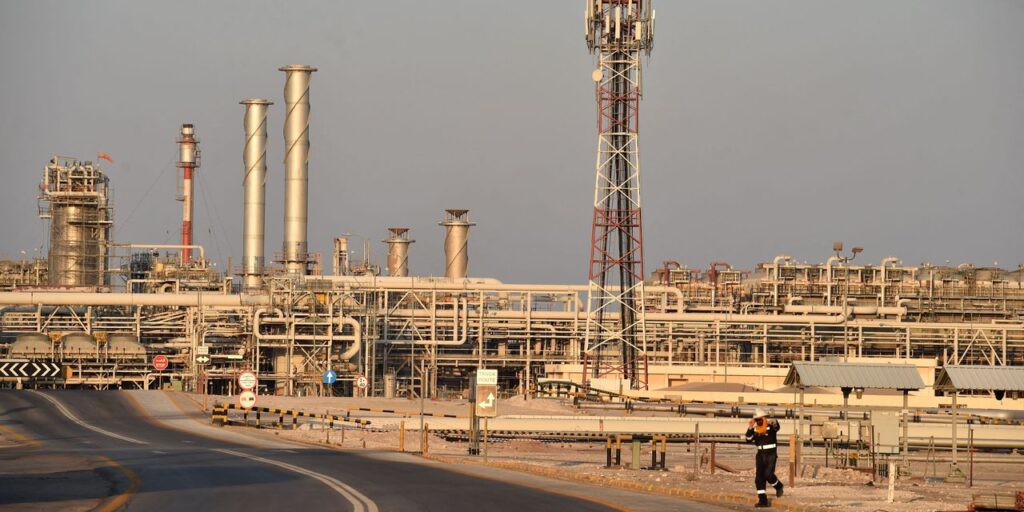Saudi Arabia has told the White House it would be willing to boost oil production early next year if crude prices are high, a move aimed at winning goodwill in Congress for a deal in which the kingdom would recognize Israel and in return get a defense pact with Washington, Saudi and U.S. officials said, according to the Wall Street Journal.
The understanding is part of an effort to seal a three-way deal that would also likely include U.S. nuclear assistance and represents a notable shift by Riyadh, which a year ago rebuffed a Biden administration request to help lower oil prices and fight inflation.
Still, Saudi negotiators emphasized that market conditions would guide any action on production and officials familiar with the talks said the discussions didn’t represent a long-term agreement to cut prices. Spokespeople for the White House National Security Council and the Saudi government didn’t respond to requests for comment, the Wall Street Journal said.
Talks on a deal have centered on Saudi recognition of Israel, a move that could remake the geopolitics of the Middle East in return for U.S. weapons sales, security guarantees and help building a civilian nuclear program. An agreement would be a diplomatic coup for President Biden as he faces a re-election battle.
Saudi Arabia hasn’t recognized Israel since its founding in 1948, and an agreement establishing diplomatic relations would expand Israel’s ties to the Arab world, potentially restrain Iran’s military ambitions, and curb China’s attempts to supplant American influence in the region.
Two top White House officials, Brett McGurk and Amos Hochstein, flew late last month to Saudi Arabia, where they emphasized that rising petroleum prices would make it harder to win support in Washington, the officials said.
The White House may need congressional support for a deal. Negotiators are now discussing a new defense pact with the kingdom that could require Senate approval as well as U.S. support for Saudi efforts to create a civilian nuclear program, and billions of dollars in weapons sales.
The trip by McGurk and Hochstein came amid a climb in oil prices, with the global benchmark, Brent crude, rising 25% this quarter and trading as high as $95 a barrel. It has pulled back in recent days, trading above $84 a barrel Friday.
See: Oil futures end higher, but post sharp weekly decline as the market stares out at a ‘darkening global demand outlook’
Public acknowledgment that the Saudis could act to lower oil prices next year might help cap crude oil prices under $100 a barrel, a historically high level that has in the past fueled inflation and led to calls in Washington for action.
As the world’s largest oil exporter, Saudi Arabia has a unique capacity to influence crude prices, with the ability to restrict the world’s oil supply or flood it.
Any move by the Saudis to raise output would be complicated by its energy-production alliance with Russia, itself one of the world’s largest oil producers. The kingdom has moved in lockstep with Moscow, which has tried to keep oil prices high by restricting production, keeping oil money flowing into its coffers to fund its war in Ukraine.
The Saudis and Russians lead an oil-producing group known as OPEC+, which is set to meet at the end of November to decide output levels. The 23-member group cut oil production by two million barrels a day a year ago in a move that infuriated the Biden administration, and Saudi Arabia and Russia have cut even more on their own since then—actions that are due to expire by the end of 2023.
See also: Oil rally shows ‘OPEC+ plan has been working’ as investors await next Saudi move
Read the full article here











